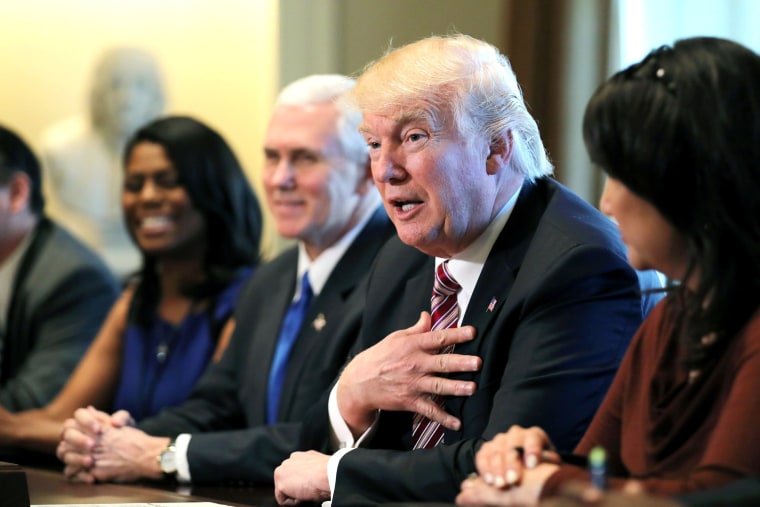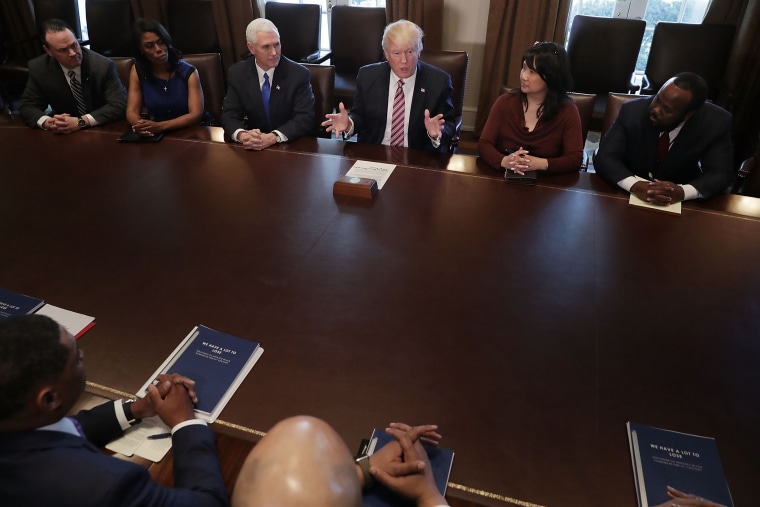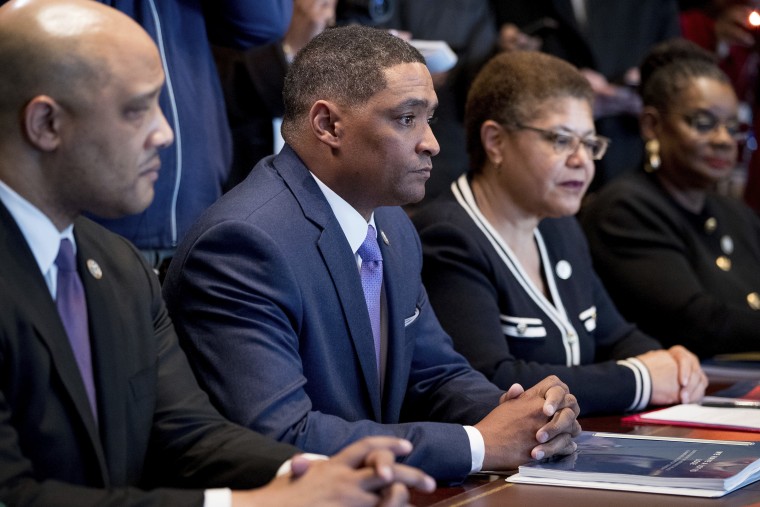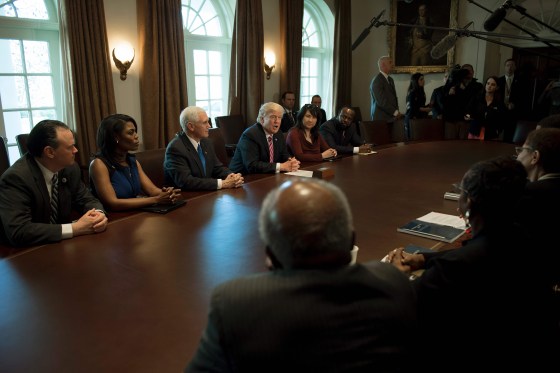On Wednesday, six members of the Congressional Black Caucus leadership team went to the White House and challenged President Trump on the very question he frequently posed to African-American voters on the campaign trail: "What do you have to lose?"
Led by CBC Chairman Cedric Richmond (D-La.), the members presented and laid out the stakes in a rebuttal of a policy document entitled, “We Have A Lot To Lose: Solutions to Advance Black Families in the 21st Century.” In the hour-long meeting, which began in the cabinet room and moved into the Oval Office, the discussion ranged from community policing to health care, from voting rights to mass incarceration.
Rep. Richmond described the afternoon conference as “a meeting where both sides listened” but were also “very candid about disagreements.”
“The surprising part is when we talked about the goals; there were more similarities than differences,” the congressman added in a presser that followed. “The route to get there is where you may see differences. Part of that is just education and life experiences. “
Attending the session were members of the CBC executive board, Reps. Karen Bass (D-Calif.), Gwen Moore (D-Wisc.), Andre Carson (D-Ind.), Brenda Lawrence (D-Mich.), Anthony Brown (D-Md.) along with Rep. Jim Clyburn (D-SC), who holds the position of Assistant Leader in the House.
Related: Meet the 22-Year-Old Running for Detroit Mayor
On the other side of the table sitting alongside President Trump were Vice President Mike Pence, Assistant to the President and Director of Communications for the Office of Public Liason Omarosa Manigault, and the President's domestic advisor La'Ron Smith.
Members said they were pleasantly surprised that the President said he wanted to meet with the Congressional Black Caucus "regularly." During President Obama's tenure, there were long stretches of time between his meetings with the Caucus.

Rep. Moore called the meeting "substantive” and remarked that limiting the meeting to a small group allowed the meeting to be more strategic and focused. The Black Caucus is currently the largest in CBC history at 49 members.
"We talked about Medicaid expansion and the efforts to block grant food stamps and everything and how that would have a detrimental impact not only on African Americans but on white constituents who voted for him," Moore told NBC News.
"The bottom line is he was elected President and we're members of Congress and we're the Black Caucus. I am committed to making sure my people, African Americans and my constituents, don't suffer," said Rep. Lawrence, who represents parts of Detroit.
Lawrence also stated that the most difficult parts of the meeting centered around Trump's immigration ban and his racially charged campaign rhetoric – often referring to Black communities in terms of mayhem and violence.
"He just nodded. He didn't argue about that. He just took what we said," Lawrence added.
“President Trump has met with various African-Americans, however we’re the only African-Americans that are elected to the United States Congress that can develop policy and offer a different viewpoint,” noted Chairman Richmond.
After a February 28 meeting with the presidents of Historically Black Colleges and Universities, many called such a gathering nothing more than a photo-op with a President who has a lot to prove with the Black community.

HBCU funding was also part of the conversation on Wednesday. HBCUs did not receive any additional funding in the new budget.
"This was a very aggressive and lean budget and HBCUs were protected," Manigault said after the meeting, stressing the fact that funding was not cut.
The highly anticipated meeting with the Black Caucus followed a puzzling exchange between President Trump and American Urban Radio Networks White House Correspondent April Ryan during a press conference on February 16. When Ryan asked the president whether he would be meeting with the CBC to discuss his urban agenda, President Trump responded, “I would. Do you want to set up a meeting? Are they friends of yours?”

Following the presser the CBC Tweeted, “Hi @RealDonaldTrump. We’re the CBC. We sent you a letter on January 19, but you never wrote us back. Sad!”
"I need to correct the record," Manigault told reporters after the CBC met the President today. "The idea that he [President Trump] had heard of or had reached out for the first time to the CBC was when a journalist stood up in that room was not correct and I'm sure Congressman Richmond would correct that record as well."
Manigault made a point of detailing the White House's attempts to connect with the Black Caucus with a formal invitation for all 49 members to meet last month.
After Wednesday’s conference, reporters and Black Caucus members joked with Ryan about whether she'd set the meeting up.
